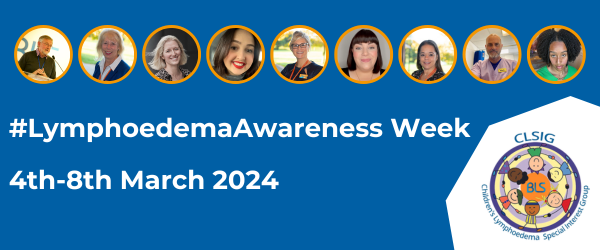Physiotherapist Cheryl White will co-host a free training event during Lymphoedema Awareness Week
Physiotherapist Cheryl White is teaming up with nurse Natalie Phillips to host a lunchtime training event during Lymphoedema Awareness Week, which runs from 4-8 March.
The 45-minute session starts at noon on 7 March and will tackle a topic that tends to be neglected: overcoming the challenges of compression therapy when caring for children and young people.
Along with nurses, physiotherapists make up the bulk of the professional membership of the British Lymphology Society (BLS), which is hosting five free educational events during the awareness week. Topics include the challenges facing families, getting the right treatments to children and young people, and managing the ‘fears, risks and barriers’ to being active.
The BLS is urging its members to promote the week by setting up stands in public areas, such as shopping and centres, and in clinical settings, such as hospitals, health centres, and to use the patient resources that are available.
Updates will be available via social media @BritishLymph and users will be encouraged to like the posts and share them using the hashtag #LymphoedemaAwareness.
Cheryl White's career milestones
Cheryl studied physiotherapy at the Queen Elizabeth School of Physiotherapy, qualifying in 1990. From 1998, she worked at the Christie Hospital in Manchester as a Macmillan lymphoedema specialist/surgical physiotherapist for nearly nine years.
After completing specialist lymphoedema training at King’s College London, she became a Macmillan specialist physiotherapist, setting up rehabilitation services for patients with complex cancer needs in central Cheshire before returning to the lymphology field at Compton Hospice, Wolverhampton.
Cheryl trained in the Leduc Method of Medical Lymphatic Drainage, working with Jane Wigg, and, in 2011, moved to her current post as a Macmillan lymphoedema specialist at St Luke’s Hospice in Winsford, Cheshire. She is a member of the Lymphoedema Training Academy and also trains with Haddenham Healthcare. She is also a casual trainer for Macmillan Cancer Support.
To find out more about Cheryl and the Lymphoedema Training Academy, click X (formerly Twitter): @CherylW33606899
Lymphoedema is relatively common, but poorly understood. Few people are aware that the condition affects about 430,000 people in the UK
- affects about 430,000 people in the UK
- affects people of all ages and can be hereditary
- is potentially caused by a range of conditions and factors that increase the risk of developing lymphoedema and chronic oedema
- is ideally treated early on to prevent complications, such as cellulitis and to minimise its severity and impact
Many healthcare professionals do not realise that
- chronic oedema is an indication that the lymphatic drainage system is failing (lymphoedema is present), so, in addition to treating the cause of the chronic oedema, lymphoedema must also be managed
- providing a lymphoedema service is less costly and labour intensive than managing the complications that arise from failing to providing a service
- supporting and encouraging people to keep as active as they are able (and keeping active themselves) helps the lymphatic system work more effectively, so being active is a key component in reducing risks and treatment options
- educating patients to protect their skin from injury and infection is a key part of risk reduction and treatment, as chronic inflammation may damage lymphatic drainage vessels
To find out more, click
Author: Ian A McMillan














